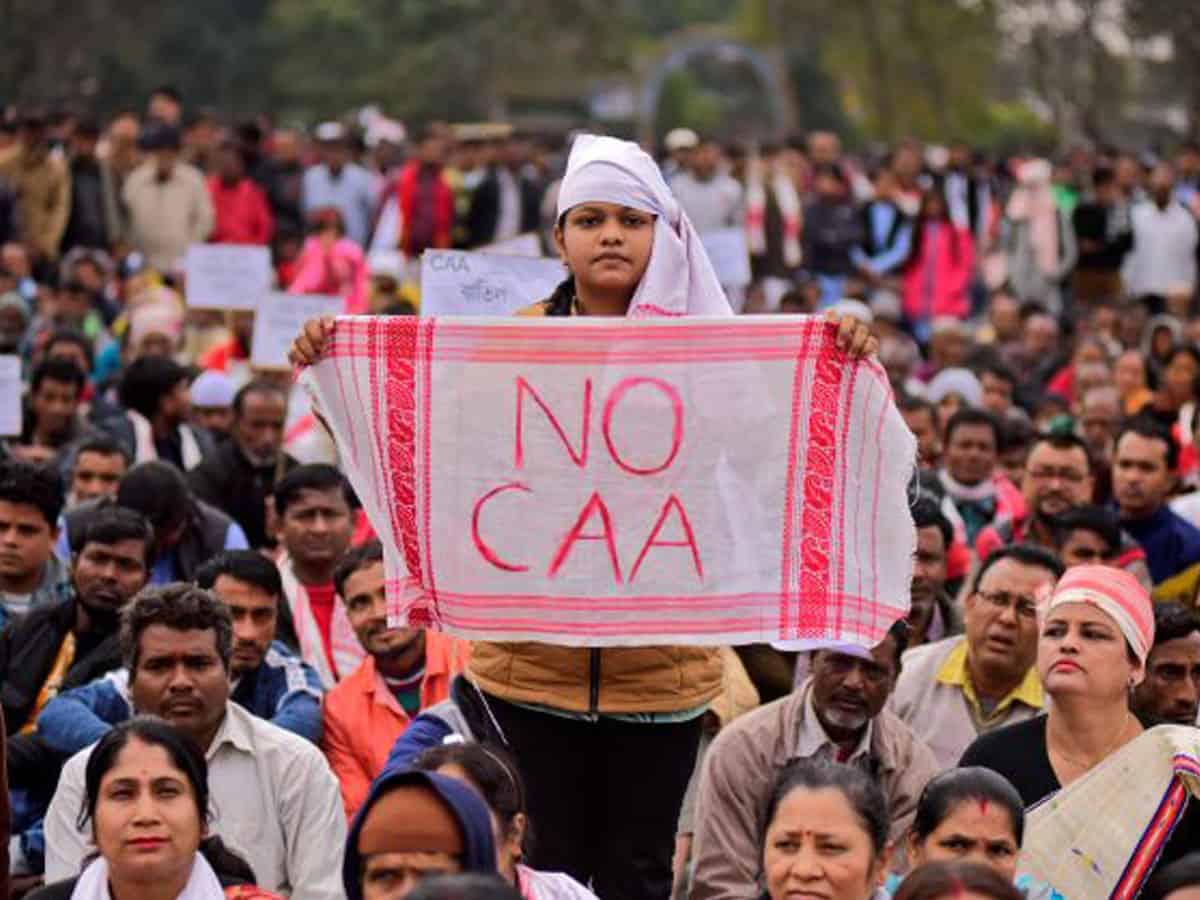
The Idea of India is being fiercely contested within society. Rampaging communalism is an offshoot. The latest to pick up the glove are two senior members of the Indian Foreign Service.
Deb Mukharji, 1964 batch, former High Commissioner to Bangladesh, in an article in Kolkata’s The Telegraph, applied the image of the falcon, which is what Shaheen means, to the Shaheen Bagh movement. The bird that soared, is his preferred simile. This invited a scowl from Kanwal Sibal, 1966 batch, and former Foreign Secretary. “Incidentally, falcons are predators.” Sibal’s riposte appeared on the IFS blog. So unabashed was he on the secularism-nationalism debate that Mukharji felt constrained to challenge him, rapier in hand, on the very same blog.
What should a discerning citizen’s stance be towards conversations of this nature which are taking place at numerous levels with a frequency gathering in momentum? First, consider evidence.
Justice S. Muralidhar of the Delhi High Court is transferred within hours of his slamming the Delhi police over continuous violence for three days, its failure to register FIRs against hate speeches by BJP’s Kapil Mishra and others. Arbitrarily transferred he might have been, but the farewell to him by Delhi lawyers showed record attendance, with men and women in black gowns leaning over the railings. The optics proved who won.
Chief Minister Yogi Adityanath’s government plasters city walls in Lucknow with poster size photographs of activists in the anti CAA protests. The Yogi is determined to “Name and Shame” the protesters. The entire operation is on the basis of allegations – no proofs.
Chief Justice of Allahabad High Court Govind Mathur takes suo moto notice of the outrage and raps the UP government on the knuckles. The intra tussle is at its fiercest in U.P.
Little Wonder, retired High Court Judge, Rakesh Sharma brings out his arsenal. He takes aim at the sitting Chief Justice. Justice Sharma apparently nurses a grouse against Lucknow’s “cultured tehzibyafta” citizens who indulged in what he swears was violence which caused damage to property and, according to him, deserve punishment. He comes to the Chief Minister’s assistance with his “tehzibyafta” prose. “The competent Revenue authority collector DM Lucknow has several powers, including coercive action of attachment sale of property through Dug Dugee.” Here you have an Honourable former Judge, retired much before the Yogi dreamt of Chief Ministership, anticipating a Bharat free of jihadists and tukde-tukde gangs. “Aage, aage dekhiye hota hai kya” Mir Taqi Mir had warned.
As I have always maintained, in this orchestra the first violin was played in 1947. That musical score is now approaching the loud clashing of cymbals reminiscent of Wagner who, incidentally, was Hitler’s favourite composer. But the crescendo and the de crescendo in this musical score continue to fluctuate. Justice Muralidhar and Justice Mathur are standing firmly behind the Republic. Those opposed to them are out to alter the nature of the Republic.
The Mukharji-Sibal exchange is a summing up of the epic debate which has the nation in thrall. Since both are eloquent on their respective positions, let them speak. Mukharji sees three distinct takeaways from Shaheen Bagh.
“First, the Muslims as a community have emerged from a state of withdrawal and firmly demanded their rights as citizens of India, without seeking any crutches of political support.
Second, Muslim women have liberated themselves from the taboos that kept them confined to their homes in large parts of India. Veiled women have been able to look their interlocutor in the eye and firmly claim that neither “mard” nor “maulvi” would stand in the way of their demanding a just future.
Whatever the eventual political outcome of their demands, the liberation of the spirit of the community, and its women in particular, is here to stay.
Third, the women of Shaheen Bagh have reclaimed what others had ceded to an aggressive nationalism of violence, hatred and divisiveness — our flag and our national anthem. And the nation has been reminded that the ultimate guarantor of our freedom is the Constitution of India.”
Enter Sibal, frothing with anger. He furnishes what to some might sound like a non-sequitur.
“You have completely overlooked the hatred and poison injected into the people by the so-called tukde tukde gang, the adulation of terrorists, Owaisi’s rants, those of the leader of the Bhim Sena, recent statements about emulating Shaheen Bagh and cutting off our northeast by Muslims who form a majority in the Chicken Neck area, the attempt to block the Jafrabad metro area in the light of the seeming success of the Shaheen Bagh that you extol, and, of course, Mamata Bannerjee’s ravings.”
Mukharji is determined not to let this go unchallenged. “I am disturbed by your comment about cutting off our North East by Muslims who form a majority in Chicken Neck area.” Having been posted to Bangladesh, Mukharji knows the vulnerability of Chicken’s Neck. He therefore asks with authority “But what is the Muslim connection?”
On Sibal’s tukde-tukde swipe, he is hard hitting. “When approached under RTI, the Home Ministry said they had no knowledge of any such entity.” He agrees with Sibal that India is not yet a fascist state, “but I think we are showing disturbing signs of a pre fascist one.”
This war within has had its share of martyrs too: rationalists like M.M. Kalburgi, Narendra Dabholkar, Govind Pansare and Gauri Lankesh, to name a few.
Participation in this epic Kurukshetra by Muslims like the Personal Boards have in the past helped exactly the forces which menace the nation today. Keep an equal distance from the Hindu who by himself is better situated to let hundred flowers bloom. Even more important is to keep the venerable Maulanas away, busy with matters of faith. Emulate the women of Shaheen Bagh who, guided by an intuitive and robust common sense, have been extraordinarily focused on the Constitution, national anthem and the flag. The larger society is sorting itself out.

